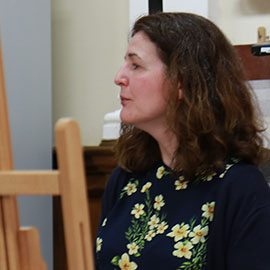Learning materials are accessed online through recorded lectures, electronic reading and an array of additional content, providing flexibility as to when, where and at what pace you learn.
This innovative model is particularly valuable for international students who do not have English as a first language, while the distance-learning format offers a cost-effective opportunity for students unable to re-locate or who need to continue in part-time or full-time paid employment.
This distance-learning approach facilitates study in any location and time zone, enhancing your employability while enriching the programme through collaboration with peers from diverse cultures and backgrounds worldwide.
Four teaching modules cover relevant aspects of collections care and professional practice (environment, material deterioration processes, display, transit and disaster planning and recovery), together with global issues in heritage conservation and the science of preventive conservation.
In your second year you will have the opportunity to carry out a professional placement module where you will have the opportunity to contextualise your studies within a heritage institution of your choosing, gaining important professional skills and experience.
Your final dissertation, submitted in the Autumn of your second year will be supported by a dissertation and academic research skills module culminating in a written Project-Dissertation, where you will conceptualise, theorise, and undertake a piece of original research that aims to be a significant and original contribution to the field.
 Option for Placement Year
Option for Placement Year Option for Study Abroad
Option for Study Abroad





